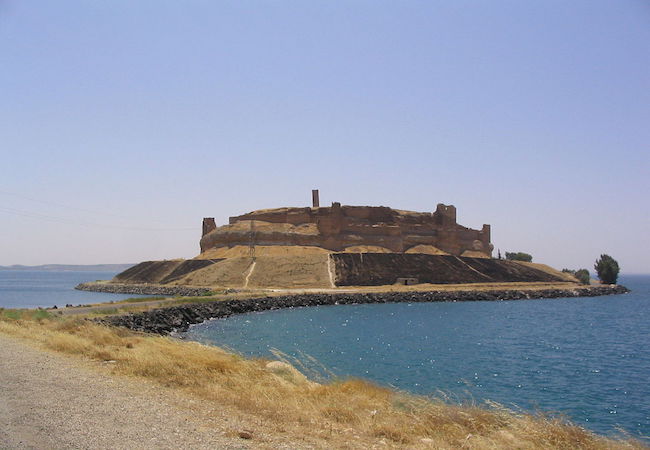Why now?: Turkey’s intervention at the Suleyman Shah Tomb in Syria

By Onur Sen
The Turkish Armed Forces intervened in Syria to evacuate its soldiers protecting the Tomb of Suleyman Shah, which sits on a small enclave of Turkish territory in the north of country. The intervention took place following reports suggesting that Turkish soldiers were besieged by ISIS militants, although this was denied by the Turkish Foreign Minister. On several occasion both President Erdogan and P.M. Davutoglu emphasized the sensitivity of the issue by stating that Turkey would take all actions necessary to protect its military personnel stationed at the site. The civil war in Syria has been going on for four years and ISIS has been active in the region for over a year now. Turkey had already evacuated its diplomatic personnel from Damascus and Aleppo at earlier stages of the civil war in Syria. Yet despite serious threats to its 40 soldiers protecting the Tomb, Turkey has not pursued any action to secure its soldiers or the Tomb until now. Here, the question remains, what made Turkey decide that now was the time to evacuate its soldiers from the Tomb? Perhaps the “diversionary foreign policy theory” can shed some light on the issue.
The basic idea of diversionary foreign policy theory is that governments pursue aggressive foreign policies or even start war to “divert” popular attention away from internal social and economic problems. Governments can use such policies when the domestic economy is not performing well or when social unrest is increasing. An aggressive foreign policy maneuver can help to distract people from internal woes and buy the government some time to fix the problems. Diversionary policies can also be used by unpopular governments before elections. Naming a foreign enemy causes a “rally around the flag effect” and a success in such adventurous policies can be attributed in elections to a higher percentage of votes. The use of diversionary policies is not only limited to unpopular governments, however, competent governments can also use these policies when they want to divert popular attention away from a change in domestic policy and gain support from their constituency.
So how does diversionary theory relate to Turkey’s intervention at the Suleyman Shah Tomb? Last week the government passed 10 articles of a controversial security bill in parliament which seriously constrict the exercise of the right to protest, extend the amount of time for wiretapping and allow police officers to keep people in custody for greater amounts of time. The bill also gives extraordinary powers to police chiefs through appointed governors, bypassing judges and prosecutors. 10 articles of the bill, called “The Legal Package to Protect Freedoms” by the current government, passed despite the fierce protest of all opposition parties in the parliament. Most representatives accused the bill of implementing measures that can be considered as “fascistic” and being designed by the government to suppress freedom of speech.
In this way, one important foreign policy move and one equally if not more important domestic policy move happened almost simultaneously. The intervention at the Tomb in Syria and the passing of the bill in the parliament on the same day is too important and interesting to be considered a coincident. Both the domestic mainstream media and reactions on social media were primarily focused on the evacuation of the soldiers from Syria. Foreign interventions do not happen every day and when they do, it is exciting for people to follow the details. Since the media is known to give people what they want, the primary news of most media outlets were related to the Tomb intervention. Although the articles of the bill will affect the daily lives of individuals much more directly than the location of the Tomb, the people paid more attention to the military adventure last week. Even elites in the opposition made more statements to the media about the intervention than the security bill. This can be seen as a triumph on the government’s behalf to successfully divert attention away from the security bill and gain support from their constituency with a “heroic” rescue operation.
Onur Sen is a Fulbright scholar at the Department of Political Science, Georgia State University, Atlanta. His research interests include conflict management, international political economy, and democratization.




